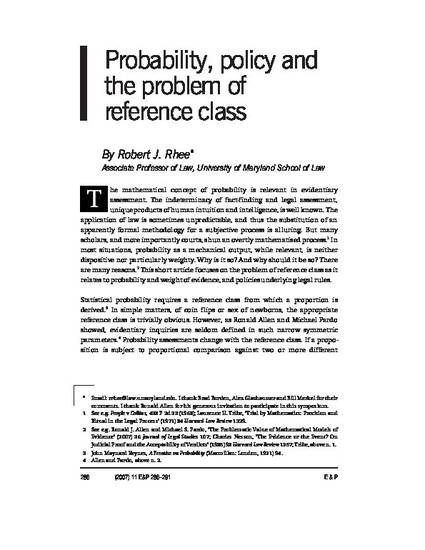
- probability,
- inductive probability,
- evidence,
- evidentiary assessment,
- reference class,
- weight of evidence,
- preponderance of evidence,
- gatecrasher,
- blue bus,
- Keynesian probability
This short paper focuses on the problem of reference class in evidentiary assessment as it relates to probability and weight of evidence. The reluctance to inject mathematical formalism into the factfinding function is justified. Objective probability requires a reference class from which a proportion is derived. Probability assessments change with the reference class. If a proposition is subject to proportional comparison against two or more different references, their selection is often an inductive process. The advantage of objectivity and methodological rigor is illusory. A legal dispute is the search for a plausible understanding of the truth, and an overtly mathematized process runs the risk of substantially substituting particularized inquiry with aggregate assessment, a notion inimical to transactional causation between conduct and injury. In special circumstances, however, when such inquiry cannot advance the goal of error minimization, a rule of law consistent with a class proposition may advance the notion of statistical justice. But as a general matter the juridical process should not confuse aggregate assessment with individual justice.
